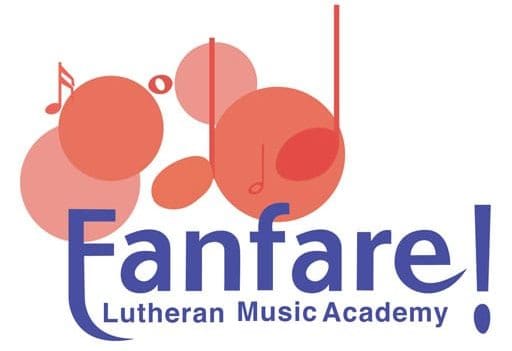Diversity, Equity and Inclusion Statement
Fanfare! Lutheran Music Academy is resolute in its promotion of diversity, equity and inclusion in all programming, with our core mission always having been to impact particularly the underserved children of Galveston through a high quality, low cost education in music and the arts. We support the “Inclusivity and Diversity in Music Education” and the “Equity and Access in Music Education” statements adopted by the National Association for Music Education, as seen below:
Inclusivity and Diversity in Music Education
A Position Statement of the National Association for Music Education
The study of music includes the study of the people, places, and cultures involved in its creation and performance. As our country becomes increasingly diverse, it is important for students in every school setting to study a wide variety of musical styles, cultures, and genres. The 2014 National Music Standards embrace this holistic approach to the study of music, encouraging teachers and students to explore a variety of musical styles and music-making traditions from around the world. This goal will be better served when we recruit a more diverse teacher workforce that more closely resembles the diversity of the United States and our school populations.
This position statement addresses the need for music education programs in our nation’s schools to be inclusive of a variety of music making traditions and opportunities, as well as the importance of building a diverse music educator workforce to support music making by all. A companion statement on Access and Equity in Music Education addresses equitable access to music education for all students, so that students, regardless of race, ethnicity, disability, economic status, religious background, sexual orientation and identity, socioeconomic status, academic standing, exceptionalities, or musical abilities, can participate in the making of music within their schools.
Our Position
A well-rounded and comprehensive music education program, as envisioned in the 2014 National Music Standards, should exist in every American school; should be built on a curricular framework that promotes awareness of, respect for, and responsiveness to the variety and
diversity of cultures; and should be delivered by teachers whose culturally responsive pedagogy enable them to successfully design and implement such an inclusive curricular framework.
Contrary to NAfME’s position, counterarguments to this position state that, although music is part of every culture in our world, music education should focus on the best in music-making, particularly the Western classical tradition. This approach holds that popular music and other traditional or folk music are not for classroom musical study. Additional counterarguments to this position include the denial of systemic barriers for teachers of diverse backgrounds from entering the workforce.
Including all forms and types of music within the classroom, however, from folk to classical, and from popular to non-Western, allows students to explore and expand their communication, collaboration, and music literacy skills in a variety of formats, structures, and ensembles. Embracing a variety of music-making in a school’s music program helps connect the music educator to the school’s community, providing opportunities for parental and community support and participation. Creating a more diverse music educator workforce supports the connection between community and school as the teaching workforce evolves over time to better match the students that we teach. Expanding the types and styles of music studied and performed invites more students into the music classroom, helping NAfME and its members realize the mission of promoting the understanding and making of music by all.
Equity and Access in Music Education
A Position Statement of the National Association for Music Education (NAfME)
A well-rounded education for our nation’s students should not only include the development of knowledge and skills in math, reading and writing, but should also include the development of musical and artistic literacy, allowing them to create, perform, and respond to music throughout the entirety of their lives. Research from a variety of sources indicates that all students do not have equitable access to music education.
This position statement addresses equitable access to music education for all students, so that students, regardless of race, ethnicity, disability, economic status, religious background, sexual orientation and identity, socioeconomic status, academic standing, exceptionalities, or musical abilities, can participate in the making of music within their schools. A companion statement, Diversity and Inclusivity in Music Education, addresses the need for music education programs in our nation’s schools to be inclusive of a variety of music making traditions and opportunities, as well as the importance of building a diverse music educator workforce to support music making by all.
Our Position
All students deserve access to and equity in the delivery of music education, one of the subjects deemed necessary in federal law for a well-rounded education, which is at the heart of NAfME’s stated mission: to advance music education by promoting the understanding and making of music by all.
Contrary to NAfME’s stated position, counterarguments to this position include that requiring music education for all American children constrains the ability of local schools, school districts, and states to determine what curricula students should study in public school. Additional counterarguments state that music education is useful only for those deemed musically talented, not for all students.
Researchers indicate, however, that including music within the curriculum for all students enhances highly valued 21st Century skills such as the ability to be creative, to communicate effectively, and to collaborate. These skills are essential for future quality of life and success in college and/or career. A comprehensive, standards-based music education taught by certified and highly effective music educators leads to the development of these skills, enhancing our schools, our communities, and our nation. Excluding students from high quality music education programs is contrary to the intent of public education in our nation – to create pathways toward lifelong success.

Recent Comments